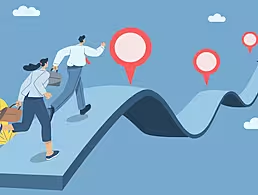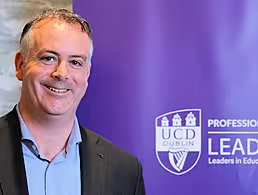Dr Rebecca Hinds discusses the latest wave of AI trends to optimise working life.
According to many experts, AI is set to have an even greater impact on working life in the year ahead. From AI agents and small language models, to the wider adoption of technology and increased real-time problem solving, there is no area that AI can’t touch. For Dr Rebecca Hinds, the head of Asana’s Work Innovation Lab, AI has the potential to completely alter organisational structures, largely for the better.
Traditionally, when it comes to AI, the focus has been primarily directed at the individual and how they can deploy technology to optimise work and become more efficient, however, according to Hinds, this has led to silos and static hierarchies, which in turn are curbing AI’s true potential .
“For years, the focus on AI has been individual. How it boosts personal productivity and demands new skills. But AI’s real power lies in reshaping how teams and organisations work,” she explained. “My colleagues and I found that algorithms often failed to deliver value because decision-making was trapped in departmental silos. When those barriers came down, AI uncovered trends and opportunities no single team could see on its own.”
Throughout 2025 the companies that implement widespread AI technologies will have to rethink much of the core frameworks, for example team structures, roles and responsibilities. Because AI blossoms in less rigid, cross-functional settings, for Hinds, the smart organisations will dismantle obvious silos, overhaul outdated data models and develop teams with the ability to optimise AI insights.
“By embracing this shift, they’ll unlock faster decisions, better collaboration and breakthroughs no static structure could achieve.”
New AI hype
The concept of Gen AI is not new, in fact, its history starts back in the 1960s with ELIZA, a rudimentary computer programme that would respond using natural language, in a manner designed to show empathy. Nowadays, Gen AI is at the centre of much of the AI hype. But Hinds predicts we are going to see a shift in interest from Gen AI to AI agents. “These agents won’t just generate content, they’ll act as autonomous collaborators embedded within every aspect of work,” she explained.
“Why does this evolution matter? Generative AI tools often lack direction, leaving users to bridge the gap between ideas and actionable outcomes. By contrast, AI agents are built for purpose, combining generative capabilities with task execution, decision-making and seamless integration into workflows. This makes them proactive problem-solvers rather than reactive tools.”
She is of the opinion that the “unbundling” of tasks and the ability to break complex workflows into smaller, automatable components, combined with the rise of AI agents, will effectively challenge the long-held assumptions in relation to how work should be organised. “By treating work not as a monolithic process but as a set of dynamic, adaptable tasks, they’ll unlock new efficiencies and innovations.”
Tackling the broken meeting epidemic
Certainly the pandemic made a rise in workplace meetings not only necessary, but completely unavoidable. For better or worse, many of the businesses that remained open moved their communications online and the overall workforce became a much more connected place.
However, while we have largely removed the vast majority of pandemic safeguards from our personal and working lives, Hinds believes that we are still losing too much time to unnecessary meetings. She predicts that the next wave of AI technology will move beyond transcription and will have the power to maximise the potential of meetings, so as to avoid excessive time loss, day to day.
“AI will curate agendas, surface relevant information, log follow-ups, identify the right mix of attendees, and offer real-time insights to make meetings sharper and more effective. It will even address biases that often derail discussions, acting as an impartial ‘referee’ to keep conversations on track and outcomes decision-driven.
“The payoff? Fewer pointless meetings, more time for high-value creative work and a collective sigh of relief when fewer meetings show up on employees’ calendars. Organisations that embrace AI-powered meeting solutions will unlock time, improve team morale and drive meaningful outcomes instead of endless discussions.”
Don’t miss out on the knowledge you need to succeed. Sign up for the Daily Brief, Silicon Republic’s digest of need-to-know sci-tech news.




